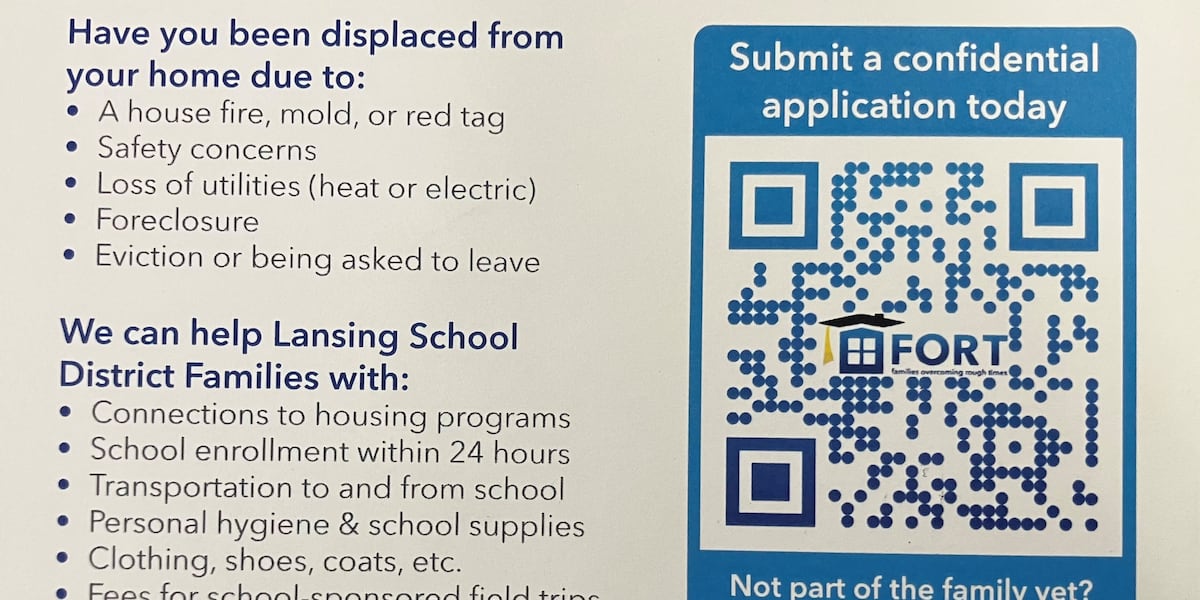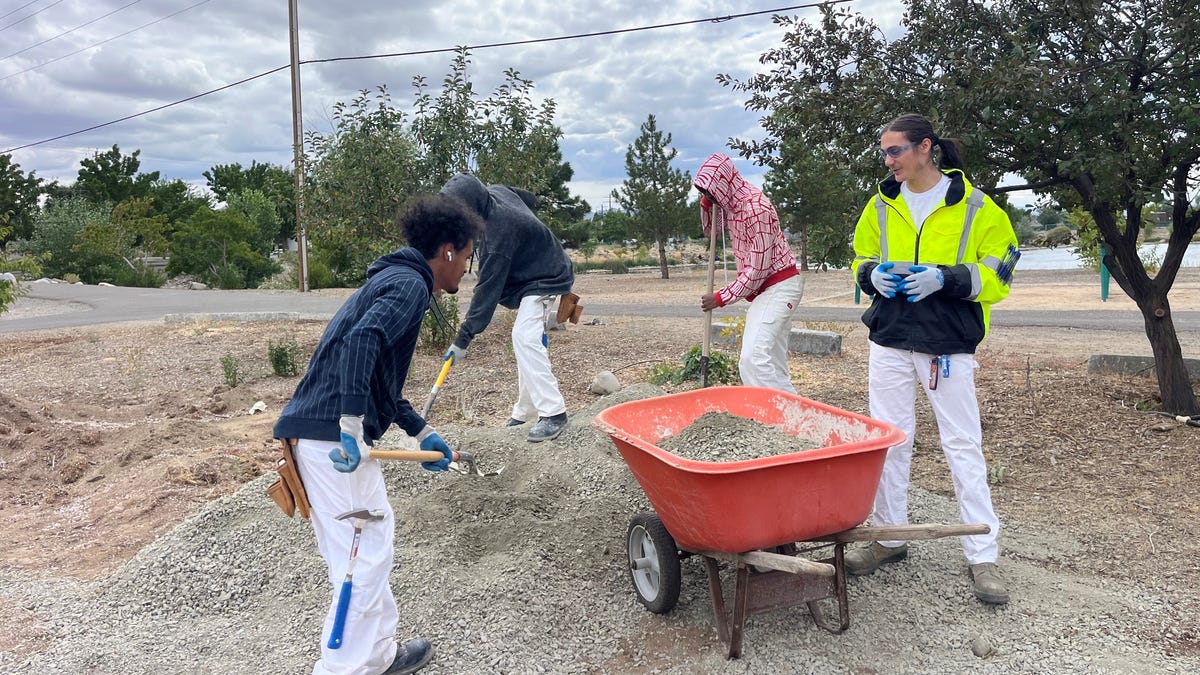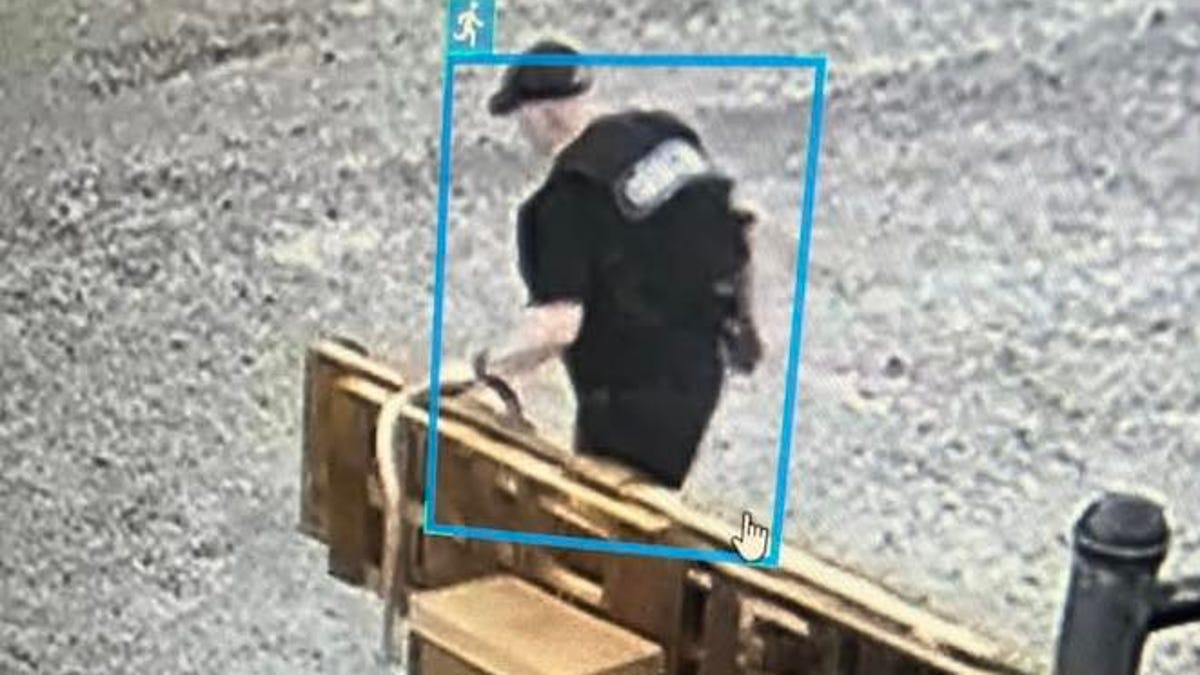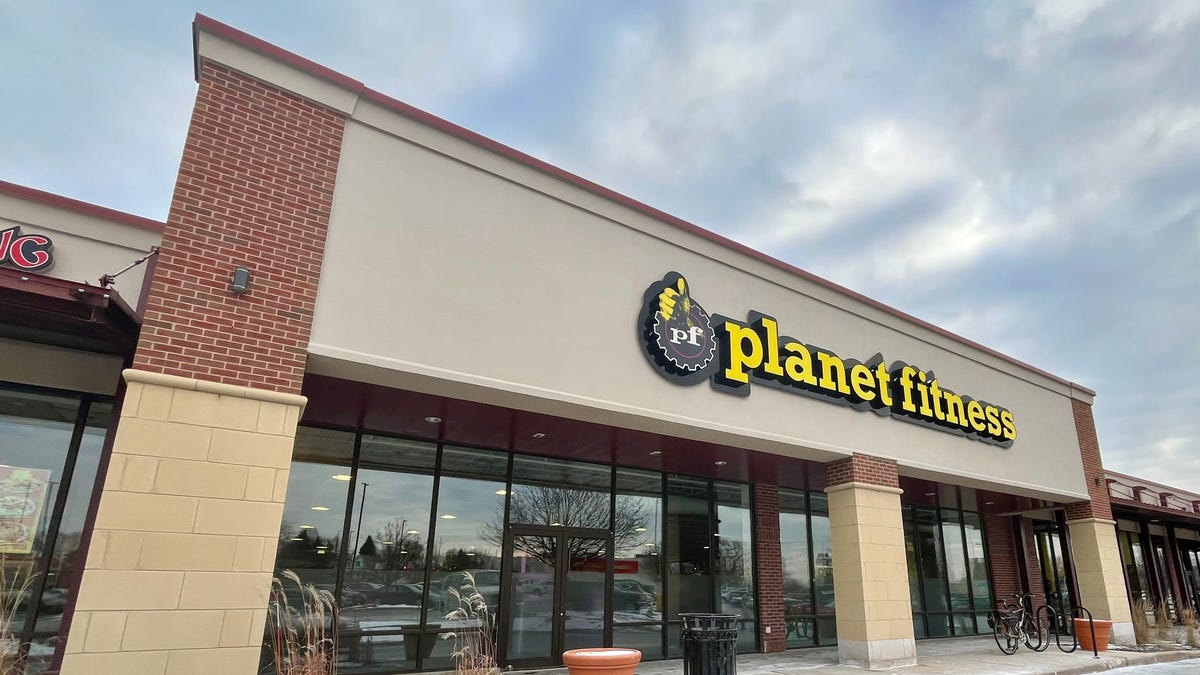Connecticut
‘Emerging’ mosquito-borne virus found in several CT towns, along with West Nile, EEE

Mosquito samples in 12 different Connecticut towns have turned up positive samples for a rare but potentially serious virus, according to the Connecticut Agricultural Experiment Station.
The Jamestown Canyon Virus, which is spread to people through infected mosquitoes, causes generally mild symptoms including fever, headache, and fatigue. But can in rare cases be more severe, causing encephalitis or inflammation of the brain, according to Philip Armstrong, an expert on mosquito-borne viruses. Cases generally occur from late spring through mid-fall, according to the Centers for Disease Control and Prevention.
“It’s something we do see here in Connecticut,” Armstrong said. “It’s spotted here every summer, but it is what we consider an emerging pathogen as more human cases have been discovered nationally throughout the country over the last few years. While we have increased our mosquito testing, the number of positive pools we are seeing with JCV is typical for what we see just about every year.”
Towns with confirmed positive samples include Cromwell, Danbury, Darien, East Haddam, Meriden, Monroe, North Haven, North Stonington, South Windsor, Wallingford, West Haven and Wethersfield, according to Armstrong. But although mosquitos have tested positive in several towns, there have only been two recorded human cases over the last 20 years in the state. There are no confirmed human cases of the disease this year.
“We don’t really see any human cases, I don’t want to alarm people,” Armstrong said. “But it is yet another virus mosquitoes carry that can cause human disease in rare instances.”
Armstrong said that a rainy summer has contributed to higher rates of mosquitos this year as standing and stagnant water increases breeding opportunities. Mosquitoes lay their eggs in standing water and the larvae need water to survive and mature. Armstrong recommends dumping any stagnant water and limiting exposure to mosquito bites.
The agricultural station, which handles the state’s mosquito testing, works with the state’s Department of Energy and Environmental Protection. DEEP handles mosquito control and management on state lands and advises local towns and homeowners about options on pest control, according to Armstrong. The agricultural station handles monitoring, including mosquito levels and confirmed viruses.
“West Nile Virus is by far a much more prevalent virus that does see hospitalizations across the state,” Armstrong said. “What we don’t see with JCV unlike West Nile is real outbreaks or clusters of the disease. It’s more sporadic cases you see pop up more infrequently.”
So far this year 26 towns across the state have tested positive for mosquitoes with West Nile Virus, according to Armstrong.
Mosquitoes trapped in Thompson on Aug. 24 by the Connecticut Mosquito Management Program tested positive for eastern equine encephalitis, the Connecticut Agricultural Experiment Station said. The five mosquitoes were of a species that predominately bites birds. Still, the station urged people to limit their exposure to the disease, which has caused 181 human cases including four fatalities since 2000.
“The recent detection of EEE virus and continued spread of West Nile virus is cause for concern as conditions are suitable for further build up of virus in the coming weeks,” said Dr. Philip Armstrong, medical entomologist at CAES. “We will continue to closely monitor mosquitoes for virus amplification, and we encourage everyone to take simple measures such as wearing mosquito repellent and covering bare skin, especially during dusk and dawn when mosquitoes are most active.”
Stephen Underwood can be reached at sunderwood@courant.com

Connecticut
Middletown becomes first city in Connecticut to implement speed and red light cameras
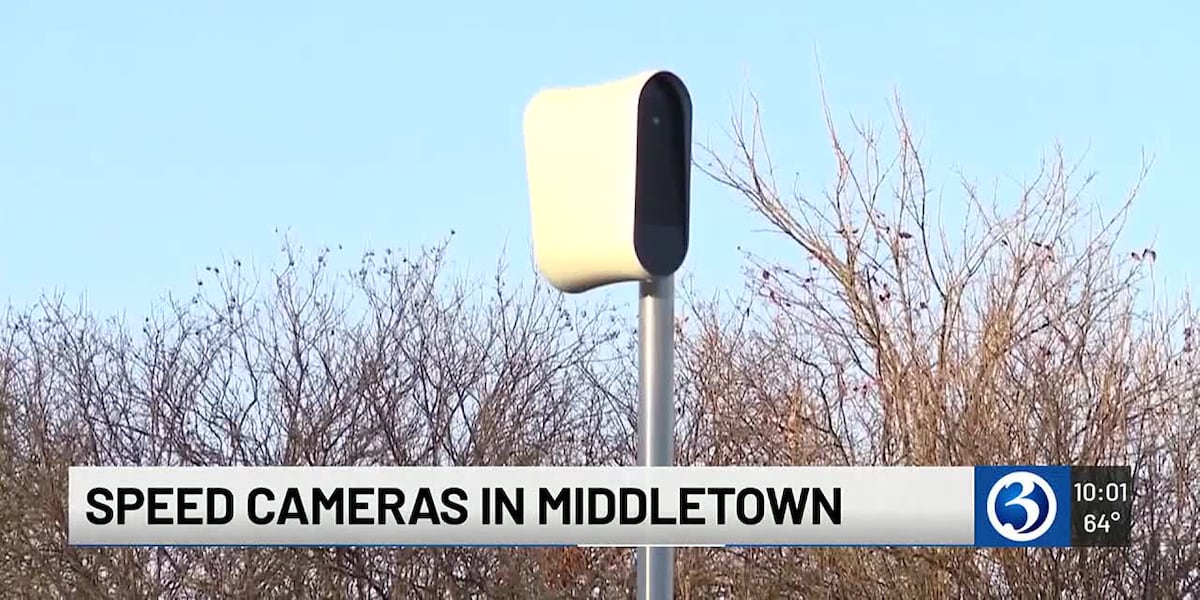
MIDDLETOWN, CT. (WFSB) – Attention drivers, a new form of speed enforcement is coming to Middletown.
They now become the first city in the state to install speed and red-light cameras to try and cut down on dangerous driving.
“I’m so happy it’s getting done. Obviously this is a school zone. We have some of America’s most precious people over here. We need to be taking care of them,” said Kaden Powers, an employee of Spencer Elementary School.
“That’s absolutely ridiculous. I’m from the Bronx and I literally moved away because those speed cameras,” said Symphony Winborne, Middletown.
Washington and Marlborough have also implemented the cameras.
One camera will be put on Washington Street, where drivers have been clocked going as high as 70 miles per hour in a 35 mile per hour zone.
Another will be installed on Westfield Street, where Spencer Elementary School is.
A third will be placed on Country Club Road, where there is a sharp turn by Highby Road and Knox Boulevard. Mooney Elementary School is also near the area.
“I have lost people from car accidents. God forbid a student is hurt. That would be the worst thing in the world. I don’t wanna ever see that happen,” continued Powers.
He hopes that the cameras will make people slow down, especially when so many young kids are walking around.
“If it’s in the school zone, then of course we want to keep our kids safe, but just to put it in the middle of all this,” continued Winborne. “So much traffic moving back-and-forth it’s going to be impossible.”
She’s afraid that they might cause more accidents with people slowing down to prevent getting a ticket.
“They see these cameras they stopped early and then all of a sudden you’re reducing the likelihood of a fatal accident, but you’re encouraging the likelihood of someone stopping to see and getting rear-ended,” said Dr. Kimberly Przeszlowski, an assistant professor of criminal justice at Quinnipiac University.
She stated that as long as the locations of the cameras are data driven and police departments are transparent about whether serious injury crashes or fatalities are down, the technology is doing its job.
They will also be used to catch people running red lights.
First time offenders will be hit with a $50 fee.
After that, the violation goes up to $75, and violators will also likely get an additional processing fee of $15.
The tickets will be mailed to the address on the car’s registration.
Copyright 2025 WFSB. All rights reserved.
Connecticut
The oldest tree in Connecticut is around 300 years old. Here’s how to see it

Arbor Day: What to know about the holiday celebrating trees
Arbor Day began in Nebraska in the late 1800s. Here’s everything you need to know about the holiday all about trees and nature.
As the weather warms up in preparation for a New England summer, many people are heading back outdoors to adore Connecticut’s nature, from flowers to mountains to trees.
While Connecticut has plenty of fantastic trees to look at this time of year, many of the state’s trees are full of history as well as beauty. In fact, the oldest tree in Connecticut is estimated to be 200-300 years old. Located in Simsbury, the Pinchot Sycamore Tree is believed to be not only the state’s oldest tree, but also its largest.
Here’s the story of Connecticut’s oldest tree, as well as where you can see the landmark today.
History of the Pinchot Sycamore Tree
While the exact origins of the Pinchot Sycamore tree are unknown, it is estimated to be 200-300 years old, with some scholars saying it may be as old as 500 years.
According to Simsbury’s town website, the tree is named after Gifford Pinchot, an environmental preservationist who was born in Simsbury in 1865. Pinchot served as governor of Pennsylvania for two terms and the nation’s first Chief of the U.S. Forest Service, which he was appointed to by Teddy Roosevelt. The sycamore was originally dedicated to Pinchot in 1965, and again in 1975.
Last measured in 2016, the Pinchot Sycamore tree stands at a whopping 95 feet tall with a circumference of 28 feet around, making it the largest sycamore tree in all of New England. Today, the tree stands as a symbol of the town of Simsbury, located just south of the town’s center.
How to see the Pinchot Sycamore Tree
Today, the Pinchot Sycamore Tree is at the center of Simsbury’s Pinchot Sycamore Tree Park, located near Talcott Mountain on the east side of the Farmington River. The address is 20 Hartford Rd., Simsbury.
Two markers near the tree recognize the tree’s dedication and measurements, as well as the park’s founders. The tree is accompanied by a nearby bench for viewing, as well as plenty of green space where residents often picnic under the tree’s shade.
Connecticut
Suspect charged in Waterbury mall shooting that wounded 5 people
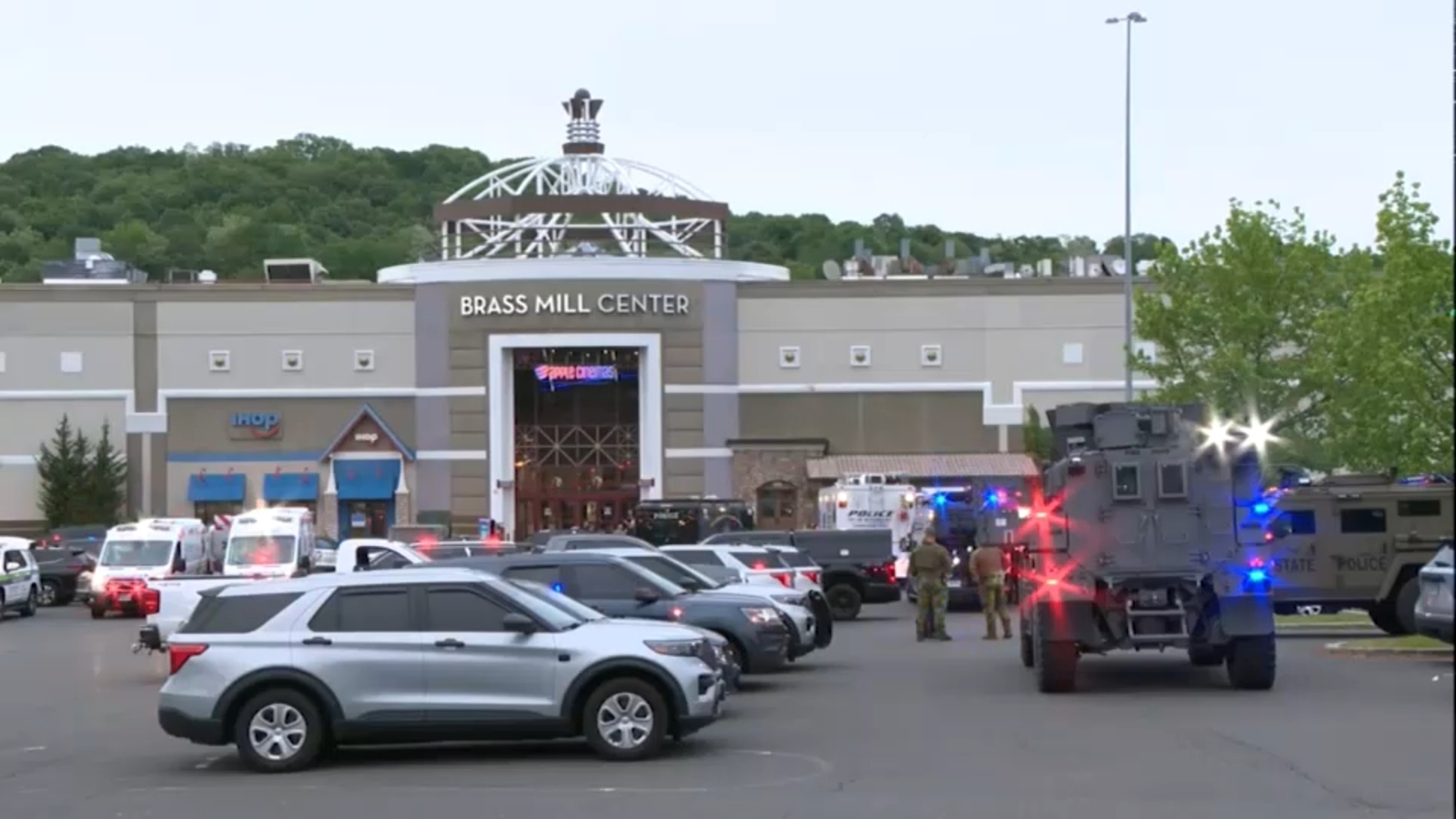
WATERBURY, Connecticut (WABC) — Police in Connecticut have arrested a 19-year-old in the shooting of 5 people at the Brass Mill Center mall in Waterbury on Tuesday.
Tajuan Washington, 19, of Waterbury, is charged with five counts of first-degree assault and a number of weapons violations, authorities said at a news conference on Wednesday.
Washington is being held on a $2 million bond.
Brass Mill Center Mall, located at 495 Union St., remained closed following the shooting just before 4:40 p.m. Tuesday, which prompted a massive police response and mall lockdown.
The victims, four women and one man, range in age from 20 to 26.
Three of the victims have been treated and released from the hospital. The remaining two are in stable condition and continue to receive medical care.
The most seriously wounded is a woman who suffered a gunshot to the spine.
Authorities said that the shooting was not random and appeared to have stemmed from a dispute that escalated into gunfire.
Law enforcement recovered evidence from the scene, including items connected to the firearm, which are now being analyzed by forensics teams.
No officers were posted inside the mall at the time of the incident.
Connecticut Gov. Ned Lamont released a statement following the shooting, saying in part, “This afternoon there was a tragic mass shooting at the Bass Mill Center mall in Waterbury, a place where everyone should feel safe. We are grateful to law enforcement, who acted swiftly.”
Authorities said the Brass Mill Center, while not opened to the public as of Wednesday afternoon, has been thoroughly searched and cleared by the Waterbury Police Department in coordination with the Connecticut State Police.
———-
* More Connecticut news
* Send us a news tip
* Download the abc7NY app for breaking news alerts
* Follow us on YouTube
Submit a tip or story idea to Eyewitness News
Have a breaking news tip or an idea for a story we should cover? Send it to Eyewitness News using the form below. If attaching a video or photo, terms of use apply.
Copyright © 2025 WABC-TV. All Rights Reserved.
-

 Culture1 week ago
Culture1 week agoDo You Know the English Novels That Inspired These Movies and TV Shows?
-

 Education1 week ago
Education1 week agoVideo: Columbia University President Is Booed at Commencement Ceremony
-

 Education1 week ago
Education1 week agoHow Usher Writes a Commencement Speech
-

 Politics1 week ago
Politics1 week agoExpert reveals how companies are rebranding 'toxic' DEI policies to skirt Trump-era bans: 'New wrapper'
-

 World1 week ago
World1 week agoEU reaches initial deal to lift economic sanctions on Syria: Reports
-

 Technology1 week ago
Technology1 week agoAMD’s new RX 9060 XT looks set to challenge Nvidia’s RTX 5060
-

 News1 week ago
News1 week agoRead the Full ‘Make America Healthy Again’ Report
-

 News1 week ago
News1 week ago'Golden Dome' Missile Shield To Be 1st US Weapon In Space. All About It
